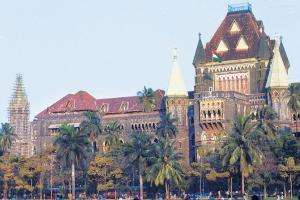Court awards 50% compensation in land acquisition to original claimant and brother

Bombay High Court
A recent judgment by the Bombay High Court has disregarded the Certificate of Purchase as proof of title in the case of a piece of property belonging to a joint family. The court was hearing an appeal that had been filed in 1990, and passed an order 27 years later, on June 15, 2018.
The dispute
The government had acquired land measuring one acre, 26 gunthas and eight annas (survey no 26/9) in the village of Koparkhairane, Thane (Navi Mumbai), and the land acquisition officer had awarded compensation of Rs 57,523.70 in respect of the said land. On receiving the acquisition notice, the original claimant, the late Vithu Agaskar, had declared he was the exclusive tenant/purchaser of the land and hence was entitled to the entire compensation.
ADVERTISEMENT
Legal heir Gajanan Agaskar objected to this stating that he was co-tenant, and that he was entitled to 50 per cent of the compensation. The Land Acquisition Officer, vide letter dated October 23, 1986, referred the dispute to the Thane court. On January 24, 1990, the court apportioned compensation of 50 per cent each in favour of the petitioner and the respondent. The matter was then challenged in Bombay High Court.
High court observation
The HC in its order (copy with this paper) stated that the acquired land was owned by Fazal Karamali. Changa Agaskar, the late father of Vithu and Gajanan, was in possession of the said land as a tenant, and his name was recorded from the year 1958-59 to 1969-70. Hence, by virtue of section 32, Changa was deemed purchaser of the land held by him as tenant. Upon the death of Changa, the names of Vithu, Gajanan and their sisters were recorded in the survey records. The mutation entries do not support the claim of oral partition. These entries substantiate that Vithu and Gajanan had inherited the tenancy rights after Changa's death.
The court also observed that Vithu had got his name entered in the survey records by bracketing the name of Gajanan. No notice was given to the respondents before deleting/bracketing the name of Gajanan in the records.
The court observed that Vithu had no independent tenancy right but held the property as a tenant on behalf of the joint family. The tenancy right of the joint tenants cannot be negated solely on grounds that the certificate of purchase was issued in favour of an elderly person of a joint family and hence certificate of purchase cannot be conclusive proof of title. Hence, the appellants cannot claim exclusive right to the property, and upheld 50 per cent compensation in favour of the respondents.
What lawyers say
The petitioner's lawyer advocate Sandesh Patil said, "We will be challenging the order in the Supreme Court. We strongly believe that certificate of purchase is more than sufficient to prove ownership. The HC has considered that the name of the claimant was there in the 7/12 extract."
Advocate Mikhail Dey, who has been observing this case closely, said, "It is unfortunate that neither the original petitioner and respondents nor their legal heirs could enjoy the fruits of land acquisition by the government due to the slow delivery of justice."
Catch up on all the latest Mumbai news, crime news, current affairs, and also a complete guide on Mumbai from food to things to do and events across the city here. Also download the new mid-day Android and iOS apps to get latest updates
 Subscribe today by clicking the link and stay updated with the latest news!" Click here!
Subscribe today by clicking the link and stay updated with the latest news!" Click here!







